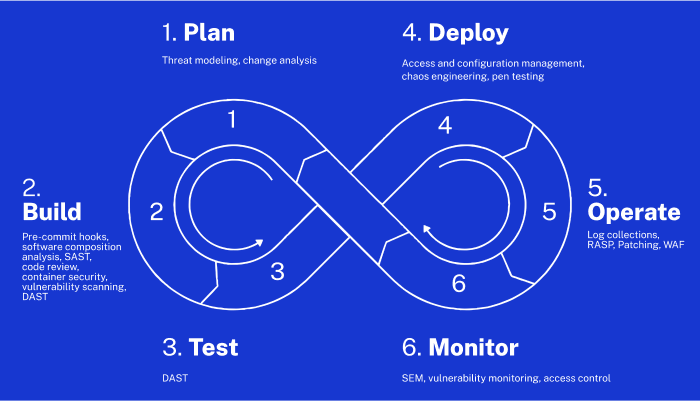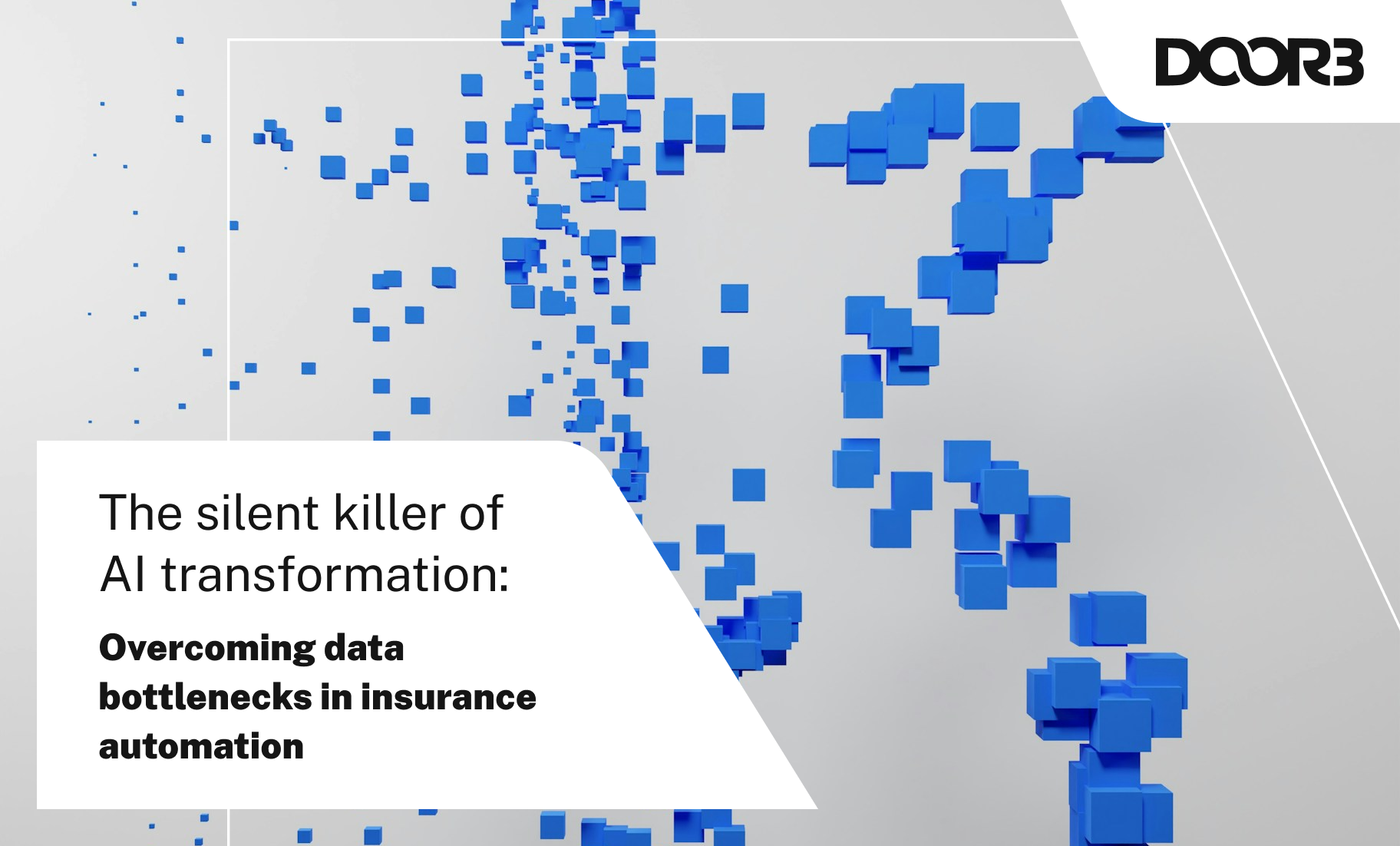The Role of DevOps Consulting in Modern Software Development
01.12.2023By now you’ve likely heard about DevOps consulting and have sense for its growing influence in the field of software development. This post will give you a comprehensive overview of the topic, some emerging trends, and what DevOps consulting means for your business.
We’ll also look at some specific examples to contextualize the information. So, whether you’re a DevOps consulting rookie or a seasoned practitioner, there is something for you here.
What is DevOps?
DevOps is the union of software development (“dev”) and software operations (“ops”). More than a mere set of tools for engineers in the field, it is the evolution of how software is made and supported. It is a perspective that expands our thinking of software development to include environmental considerations that ultimately establish the operational cost, performance, security, and availability of an application.
DevOps recognizes that all software exists in a state of flux and in relation to other systems – and in so doing it weds operational considerations (system administration, security, and maintenance for example) with the business needs that the software is designed to serve.
As software development practices mature, long term operational considerations (including systems administration and infrastructure) become Day 1 considerations when architecting and developing software.
What is DevOps development Consulting?
DevOps development consulting is a specialized offering provided by a company specializing in DevOps to enhance and streamline an organization’s software development and operational processes. These services are crucial in bridging the gap between development (Dev) and IT operations (Ops), ensuring a more efficient and cohesive workflow.
A consulting company begins by assessing the current state of your processes, identifying areas for improvement, and developing a tailored DevOps strategy. This includes the integration and automation of tools, which is a cornerstone of DevOps development consulting. By automating various stages of the software development lifecycle, such as coding, testing, and deployment, these services facilitate continuous integration and continuous deployment (CI/CD), significantly speeding up the release cycle.
Another critical aspect of DevOps development consulting is the focus on Infrastructure as Code (IaC), enabling efficient management and provisioning of infrastructure. Additionally, these services often encompass cloud services and migration, guiding businesses in leveraging cloud computing for optimal performance and scalability.
Security is also a paramount concern, and a company consulting for DevOps will typically integrate security measures right from the start of the development process. This approach ensures that security is not an afterthought but an integral part of the development lifecycle.
DevOps development consulting is not just about technical improvements; they also involve a cultural shift within the organization.
“The the most important elements of DevOps development consulting don’t just lie in the technical enhancements, they also foster cultural transformation within an organization,” explains Dmytro Onypko, a DOOR3 DevOps expert.
“A proficient DevOps consulting company doesn’t just focus on automation and technical optimization. It plays a pivotal role in breaking down silos, nurturing a collaborative environment, and instilling a mindset of continuous learning and improvement. This holistic approach is what makes DevOps consulting indispensable for organizations striving to refine their software development and operational efficiencies. It’s about evolving both the tools and the team dynamics for sustained progress and innovation.”
DevOps Consulting: Core Principles and Philosophy
This holistic process of automating and maintaining application deployment and execution environments represents an expansion of software development to include how software is QA-ed, deployed, and run. This ensures the priority of non-functional requirements like security, availability, and performance. The key to this approach is the balance of responsibility across a team.
Before we think more about DevOps consulting, we need to think about it as a perspective and approach. DevOps is centered on the collaborative activities of shared ownership, workflow automation, and fast feedback. You can think of this as a cycle that feeds back on itself.
Planning stages set up coding work, which builds the software that then needs to be tested before being released and deployed. It then operates in an end-user environment and is monitored continuously, which feeds back into the planning of additional stages, and the cycle starts over again.

DevOps continuous deployment consulting practices: CI/CD
In the realm of DevOps, continuous deployment consulting is a critical component. This cultural philosophy is implemented in various ways throughout the project lifecycle. DevOps acts as the infrastructure surrounding the software, akin to a cellular membrane that holds together and safeguards the contents inside.
Maintaining this equilibrium involves different practices, undertaken at key times. For instance, CI/CD, which encapsulates continuous integration, continuous delivery, and continuous deployment, is a cornerstone of continuous deployment consulting. Each practice offers a unique perspective, and they all function in harmony.
Continuous Integration
In continuous integration, deployment velocity is increased while maintaining integrity. Code is consistently committed in manageable increments by individual developers. The builds and testing are automated, and the use of a communal repository allows for quick fixes in case of failure. This approach reduces the likelihood of conflicts between developers working on different branches.
Continuous Delivery
Continuous delivery ensures a system is always ready for deployment. With all code changes deployed from a shared repository, teams benefit from enhanced communication and transparency. This aspect of continuous deployment consulting significantly lowers the effort required for deployments.

Continuous Deployment
Continuous deployment automates the release of repositories into the production environment. This automation, a hallmark of continuous deployment consulting, frees up time for coding and spares developers from tedious manual processes. It also initiates the development cycle anew, a testament to the effectiveness of the process.
DevOps Tools: The Serverless Model
Here at DOOR3, a practice that we have used to help clients reach their goals is going serverless. Serverless is a cloud deployment model where cloud services take the place of servers or virtual machines.
This model offers increased flexibility, able to scale without direct, hands-on intervention. It reduces costs because you do not have to reserve space like in other cloud models.
Additionally, a well architected serverless model allows for greater specialization in the practice of software development: devOps engineers design and build execution environments, while software engineers implement business logic. This separation of powers allows for cleaner code.
Pros and Cons - Serverless Model
There are some distinct advantages and drawbacks of the serverless model.
Its benefits include it doesn’t require active server management and security/updates are not managed internally.
It offers quick deployments and updates.
It is scalable out of the box to the tune of millions of users, at least when deploying the majors like AWS and Azure.
It has consistent reliability and availability.
It is also ideal for low and uneven-demand environments such as dev, QA, and UAT.
It is good for interpreted languages such as javascript and python, and superb for modern BYOR languages like Golang and Rust.
Additionally, it does not require a full rewrite of an application.
However, it is not all sunshine and roses. Some of the drawbacks of the serverless model include:
The tendency toward cold starts for JITted languages such as C#.
It is sometimes not budget friendly for stable load scenarios or big, highload applications.
It is also not suitable for very long running processes.
Debugging is markedly harder, but best practices can help.
Most obviously, it is limited to the cloud and can result in vendor lock-in
Why DevOps, Why Now?
In the simplest terms, DevOps consulting is a significant budget consideration for almost all resource plans. However, its goals offer a unique ROI that compounds over time.
DevOps consulting aims to build software that is:
Cost-optimized and application-aware
Auto-scaling
High performance
Highly-available And has:
Secure infrastructure able to supports rapid, zero-downtime deployment with lossless rollback
At DOOR3, we employ DevOps from the start of the development process to ensure we deliver. We believe that it adds significant value to a project, especially as a day-one consideration. We see it is a vital necessity, rather than a luxury.
DevOps consulting offers significant returns in the following areas:
Trust: Clients and users will trust the software will work and developers will trust that what they build will run well.
Scalability: A robust and scalable architecture mitigates future risk of refactoring and allows clients to make necessary improvements down the line.
Cost: Optimized infrastructure reduces overhead.
Security: Preemptively block-off common threat corridors.
Availability: Ensure a well-functioning site at all times.
Cloud-Vendor Independence: Especially for larger clients that do not want to be stuck with one data center or AWS.
Access to the cloud for any company. Deployments: Faster and safer.
Continuous integration, testing, and deployment through automation.
Vulnerability checks and breech tests.

As an integral part of our process at DOOR3, DevOps consulting works in projects to guide development and ensure the timely delivery of a client’s custom software solution, facilitate its maintenance, and lay the foundation for future growth. If you would like to learn more, contact us today.
FAQ: DevOps Consulting Services
**1. What services do DevOps consultants typically offer? ** DevOps consultants provide a range of services aimed at optimizing software development and operations. These include implementing automation tools, setting up CI/CD pipelines, Infrastructure as Code (IaC), cloud migration and management, integrating security practices (DevSecOps), and fostering a collaborative organizational culture.
**2. How do DevOps consulting companies improve software deployment? ** DevOps companies streamline software deployment by implementing continuous integration and continuous deployment (CI/CD) practices. This ensures that code changes are automatically tested and deployed, leading to faster, more efficient, and reliable software releases.
**3. What is the role of cloud services in DevOps consulting? ** Cloud services play a crucial role in DevOps consulting. A consulting firm may assist businesses in migrating to cloud platforms, optimizing cloud usage, and managing cloud infrastructure, which enhances scalability, flexibility, and efficiency in software development and operations.
**4. How do DevOps consulting firms integrate security into the development process? ** DevOps consulting firms adopt a DevSecOps approach, integrating security measures from the beginning of the development lifecycle. This ensures that security considerations are embedded throughout the process, rather than being an afterthought, thereby enhancing the overall security of the software.
**5. Can DevOps consulting help in cultural transformation within an organization? ** Yes, one of the key roles of DevOps consulting is to aid in cultural transformation. It promotes a collaborative environment, breaking down silos between departments, and encouraging continuous learning and improvement, which are essential for successful DevOps implementation.



